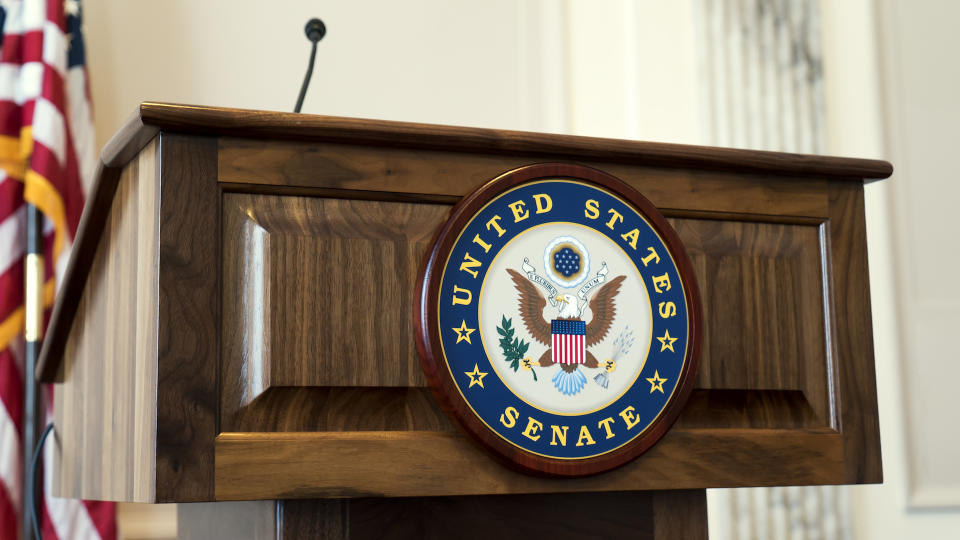Debt Ceiling: Congress, Senate Pitch Plan to Avoid Government Default

The U.S. Treasury Department has estimated that the federal government will not have enough money to pays its bills by Dec. 15, 2021, if the debt ceiling isn’t raised. As a group of bipartisan representatives in the House propose legislation to avoid similar situations in the future, congressional Democrats are looking at ways to pass a vote to raise the debt ceiling without full Republican support.
See: Government Shutdown vs. Debt Ceiling: What’s the Difference?
Find: Why the Debt Ceiling Is Always Up for Debate
If the U.S. exceeds the debt ceiling, CNBC.com reports, it could “wreak havoc on the global economy and stock markets.”
Democrat leaders have come up with a possible two-step solution but, per CNBC, said solution would be “complicated and carry risks.”
First, Democrats would have to find at least 10 Republicans who would vote to allow Democrats to raise the borrowing limit without broader Republican support. They would be permitted to raise the debt ceiling by a specified amount — one time only — through a simple majority vote.
Then, Democrats would tie that action to a bill that prevents automatic Medicare spending cuts slated for the end of this month. The bill is likely to pass in the House, perhaps as early as the evening of Dec. 7. The legislation would then likely pass the Senate, with Vice President Kamala Harris casting the tie-breaking vote.
Under the legislation, the borrowing ceiling would increase by just $2 trillion, which — as a source told CNBC — is enough to get through the 2022 mid-term elections.
See: Government Shutdown 2021 Update: How Could a Default Affect Interest Rates?
Find: Yellen Urges Congress To Come To Permanent Debt Ceiling Resolution Before Treasury Money Runs Out
Some analysts suggest that such a compromise may help Republican political positions while also preventing the federal government from defaulting on its sovereign debt. If Congress doesn’t raise the debt ceiling, it would be the first time in the history of the United States that a default ever occurred, in spite of many close calls. Meanwhile, by tying the provision to a Medicare bill, Democrats won’t have to include language to hike the borrowing limit in the $1.75 trillion social spending and climate package.
More From GOBankingRates
This article originally appeared on GOBankingRates.com: Debt Ceiling: Congress, Senate Pitch Plan to Avoid Government Default

 Yahoo Finance
Yahoo Finance 